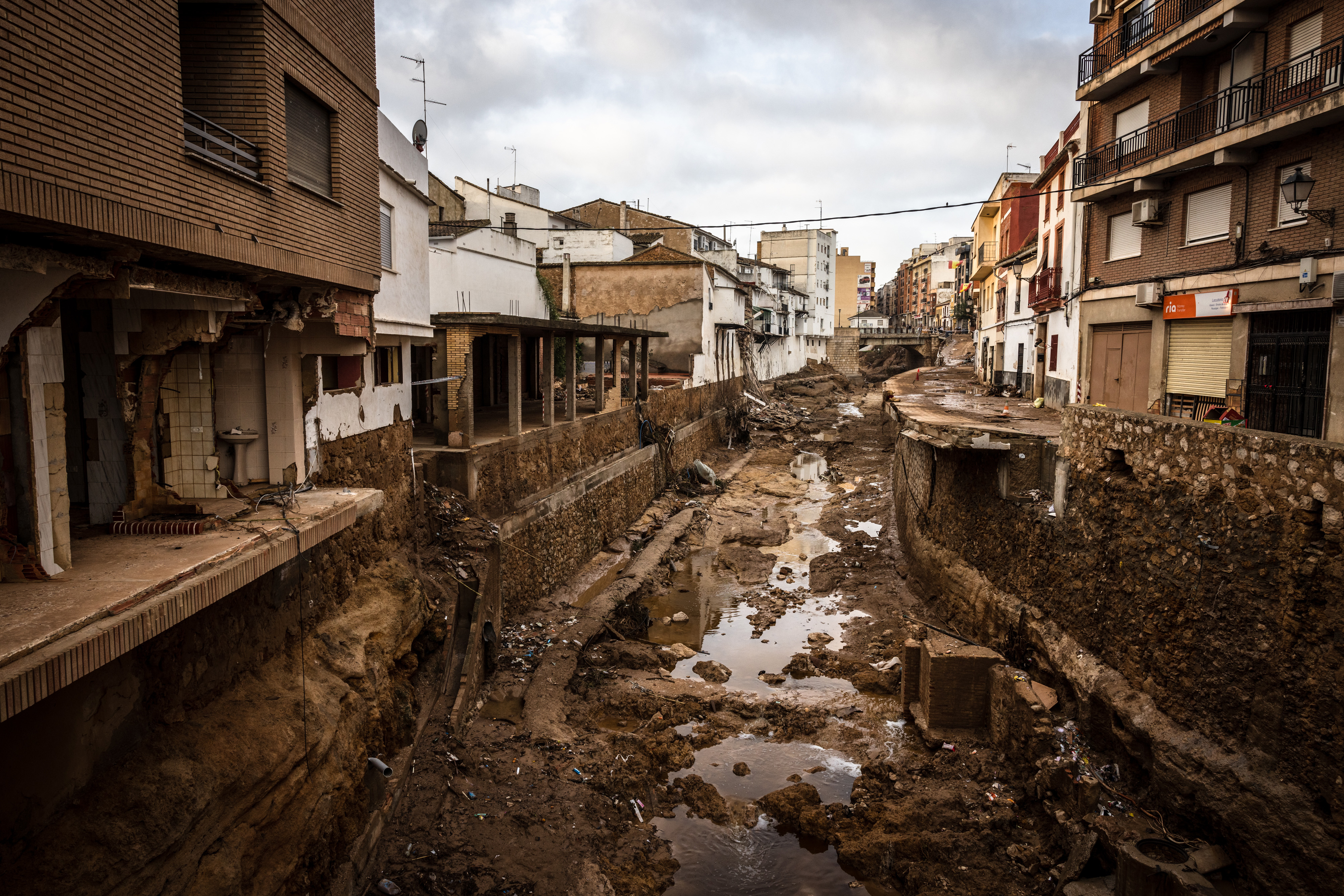Anger over flood response swells as Spain explodes in protests
The Spanish government is reeling as furious citizens look for answers in the wake of October's catastrophic flooding


A free daily email with the biggest news stories of the day – and the best features from TheWeek.com
You are now subscribed
Your newsletter sign-up was successful
There has been a shift over the past few years away from questioning whether human-driven climate change is real (although there are still plenty of people who insist it is not) to questioning what — if anything — can be done now that the change is here.
In Spain, where more than 200 people are dead after flash floods swept through the country last month, the debate over preparedness and response to extreme weather has become a national flashpoint for citizens furious at their elected officials for, many believe, not doing enough in the face of catastrophic storms. As Spain continues the painful process of rescue and recovery across its east, Spaniards have begun speaking out against what they claim has been governmental inaction and malfeasance during the storms.
"This government needs to go," one man bluntly told Spain's King Felipe VI and Queen Letizia as they toured the damage earlier this week, "Felipe, there are dead people out there, dude," the man continued in a scene that is "still reverberating across Spain" as being "symbolic of the public anger here of the government's response to the deadly storms," National Public Radio said.
The Week
Escape your echo chamber. Get the facts behind the news, plus analysis from multiple perspectives.

Sign up for The Week's Free Newsletters
From our morning news briefing to a weekly Good News Newsletter, get the best of The Week delivered directly to your inbox.
From our morning news briefing to a weekly Good News Newsletter, get the best of The Week delivered directly to your inbox.
Why are people so angry?
Fury over the government's "haphazard management of the crisis has been building" since the storms hit, as drinking water is unavailable for many, "internet and mobile phone coverage remains patchy" and entire city blocks are "clogged with piles of detritus, countless totaled cars and a ubiquitous layer of mud," The Associated Press said. Residents of Spain's Valencia region, which was hit hardest by the flooding, cite "tardy alerts from the authorities about the dangers of Tuesday's flooding" followed by a "late response by the emergency services when disaster struck," Reuters said.
"Obviously, it's a catastrophe caused by climate change," said Valencia resident Francesc Zamorano to The New York Times. "But if the government warned us earlier, everything would be different." As the storms hit, there were approximately 12 hours between when the State Meteorology Agency "issued a red alert and when local government officials sent alerts to people's phones," The Washington Post said.
Frustration is not limited to citizens, either. The floodwaters have opened rifts between elected officials as well. Valencia's regional leader, a member of the conservative People's Party, has blamed the country's "socialist government and even the armed forces' military emergencies unit (UME) for the disaster and the delay in relieving it," The Guardian said. At the same time, he "stands accused of waiting almost 14 hours before sending an emergency alert to people's phones last Tuesday."
What have authorities done?
As of this week, Spanish authorities have deployed thousands of troops and rescue personnel across the affected regions, including nearly 8,000 soldiers to the hard-hit Valencian city of Paiporta "on top of the 5,223 Civil Guard personnel and 4,256 National Police officers that have already been mobilized," CNN said. The deployments are the largest of their kind "ever made in our country in times of peace," said Prime Minister Pedro Sánchez.
A free daily email with the biggest news stories of the day – and the best features from TheWeek.com
Despite that historic commitment, People's Party national leader Alberto Núñez Feijóo has demanded the government "declare a national state of emergency, which would centralize management of the crisis in Madrid, wresting powers from Valencia's regional government" — something the government has "ruled out," said the BBC.
With an eye to the future, Valencia's regional leader, Carlos Mazón, has put forward a more than $33.3 billion proposal for the "reconstruction of the flood-devastated areas, to be financed by the central government," while Prime Minister Sánchez has announced a "separate initial aid package" worth $11.4 billion, said the BBC.
Rafi Schwartz has worked as a politics writer at The Week since 2022, where he covers elections, Congress and the White House. He was previously a contributing writer with Mic focusing largely on politics, a senior writer with Splinter News, a staff writer for Fusion's news lab, and the managing editor of Heeb Magazine, a Jewish life and culture publication. Rafi's work has appeared in Rolling Stone, GOOD and The Forward, among others.
